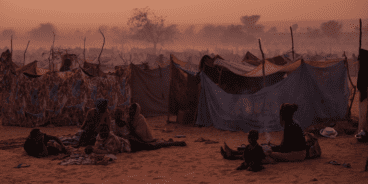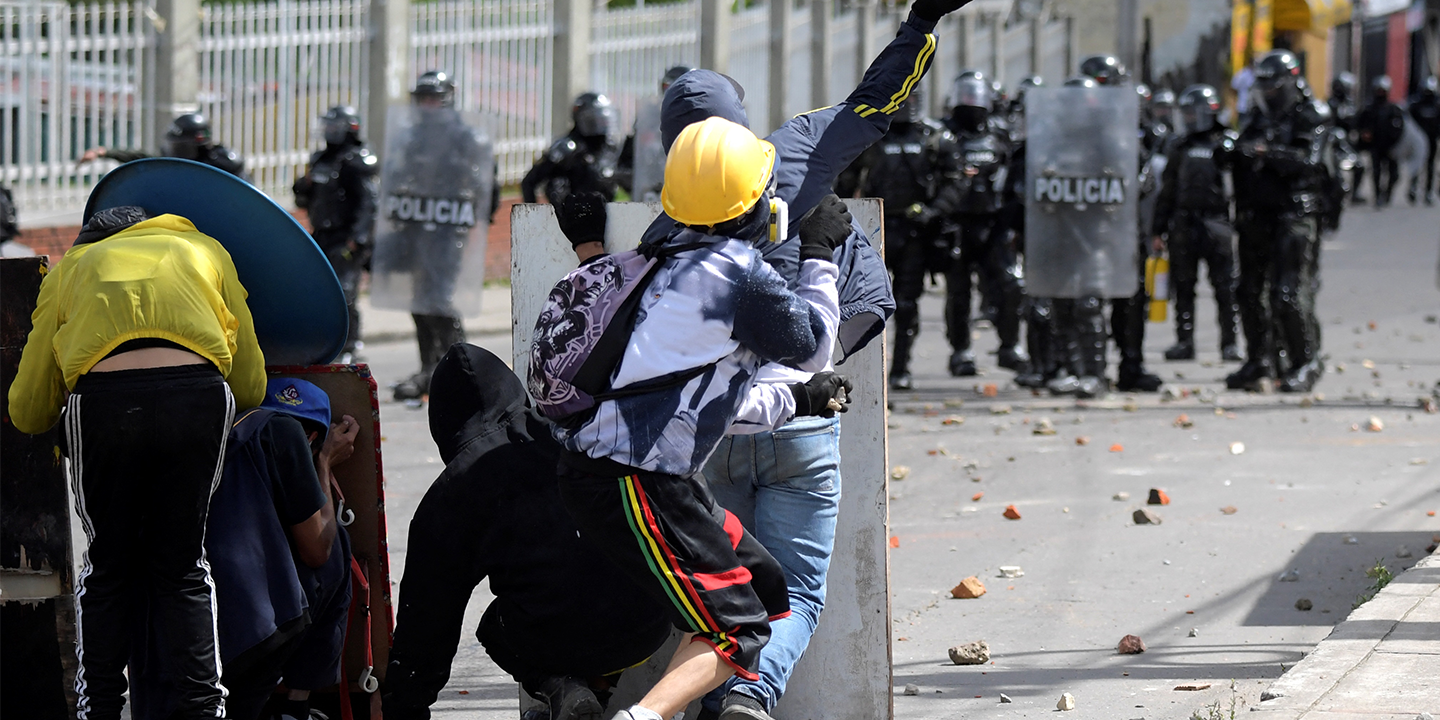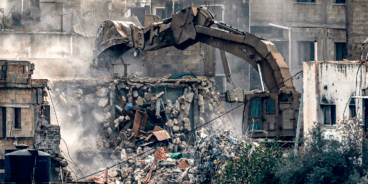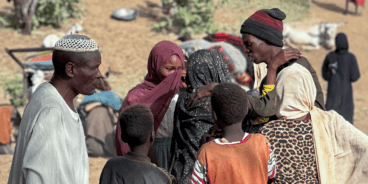

Atrocity Alert No. 255: Colombia, Recognizing Past Atrocities and Israel and the Occupied Palestinian Territories
Atrocity Alert is a weekly publication by the Global Centre for the Responsibility to Protect highlighting situations where populations are at risk of, or are enduring, mass atrocity crimes.
COLOMBIA’S DEADLY ASSAULT ON MASS PROTEST MOVEMENT
The death toll continues to rise in Colombia as the government intensifies its crackdown on nationwide demonstrations that started on 28 April. According to the Office of the UN High Commissioner for Human Rights (OHCHR), since last Friday, 28 May, 14 people have died and at least 54 have been wounded by firearms in the southwestern city of Cali. There are also reports that some private citizens opened fire on protesters as the police watched.
Human rights organizations warn that the actual death toll is likely to be higher, reporting that at least 67 people have died since protests erupted last month. OHCHR has raised concerns about police officers opening fire on demonstrators, and Colombian human rights organizations have identified almost 3,500 cases of abuse, including killings, excessive use of force, torture, disappearances and sexual violence.
On 28 May President Iván Duque announced “the maximum deployment of military assistance to the National Police” in order to disperse ongoing protests and end looting and violence. According to José Miguel Vivanco, Americas Director at Human Rights Watch, “the Colombian government’s decision to deploy the military to counter ongoing protests is likely to increase – rather than help solve – unrest and human rights violations in the country.”
In response to the violence in Cali, the UN High Commissioner for Human Rights, Michelle Bachelet, emphasized that, “it is essential that all those who are reportedly involved in causing injury or death, including State officials, are subject to prompt, effective, independent, impartial and transparent investigations and that those responsible are held accountable.”
Protests originally spread across Colombia in response to a government-proposed tax reform. However, police violence contributed to further mass demonstrations against inequality, rampant poverty, insecurity and corruption. They also exposed structural problems with policing in Colombia, including militarization, the sometimes deadly and excessive use of force by the National Police, and a lack of oversight and accountability for past human rights violations and abuses.
The Colombian government should immediately withdraw the military from the streets and ensure independent investigations into the use of deadly and disproportionate force by the police. The government should also initiate security sector reform, including of the National Police, and facilitate a dialogue with protest leaders in order to achieve a sustainable political solution to the current crisis.
ANGOLA, FRANCE, GERMANY AND US MAKE HISTORIC ACKNOWLEDGMENTS OF PAST ATROCITIES
Recognition of past atrocities is an essential step in achieving truth, reconciliation and non-recurrence. Learning from the past is also crucial to our collective understanding of how the international community should uphold its responsibility to protect persecuted and vulnerable populations today.
Last Thursday, 27 May, during a ceremony in Kigali, President Emmanuel Macron of France apologized for his country’s role in enabling the 1994 genocide against the Tutsi in Rwanda. Over the course of a 100-day period between April and July of 1994 more than 800,000 Rwandans were targeted and murdered in the fastest genocide of the twentieth century. Macron acknowledged that France failed to heed warnings of impending atrocities and for too long has “valued silence over examination of the truth.” Although Macron noted that France did not directly participate in the killings, his apology acknowledged that, “France did not understand that by wanting to block a regional conflict or a civil war, it stood de facto by a genocidal regime.”
Also on Thursday, Angola’s President João Lourenço apologized to the victims’ families of a massacre perpetrated by the ruling People’s Movement for the Liberation of Angola party following an attempted coup in 1977. Between May and September 1977 more than 30,000 people were massacred while thousands of others were imprisoned and tortured by the government. Referring to these actions as a “great evil,” President Lourenço acknowledged that the tactics used were “disproportionate and extreme” and asked for forgiveness on behalf of the government.
The following day Germany agreed to pay 1.1 billion euros to fund projects in communities impacted by the genocide of the Herero and Nama people during its colonial rule over Namibia. Between 1904 and 1908 tens of thousands of Herero and Nama were massacred or left to starve to death after being forced into the desert. Those who survived were sent to concentration camps and subjected to forced labor. Although the German government has previously acknowledged the genocide, until now it had refused to pay any reparations to the victims’ descendants.
Finally, yesterday, 1 June, United States President Joe Biden issued a historic statement acknowledging the 100th anniversary of the “Tulsa massacre” when a rampaging mob of white racists burned down dozens of blocks in the Black American section of the city, destroying over 1,100 homes and businesses. As many as 300 people were possibly killed. Speaking in Tulsa, Oklahoma, Biden said, “we do ourselves no favors by pretending none of this ever happened…We should know the good, the bad, everything. That’s what great nations do: They come to terms with their dark sides.”
Jaclyn Streitfeld-Hall of the Global Centre for the Responsibility to Protect, said that, “while these acknowledgments may seem largely symbolic and have occurred many decades after the atrocities were perpetrated, recognition of the truth and remembrance of those who suffered these crimes is of deep significance to victims, survivors and their families for whom these announcements are not mere words.”
UN CREATES HISTORIC COMMISSION OF INQUIRY ON ISRAEL AND PALESTINE
On Thursday, 27 May, the UN Human Rights Council (HRC) voted to establish an international Commission of Inquiry (CoI) to investigate violations of international law in the Occupied Palestinian Territories (OPT) and Israel and identify the root causes of recurrent tensions, instability and protraction of conflict. For the first time, an HRC-mandated CoI will have an open-ended mandate. The CoI will investigate not just the recent hostilities in Gaza and the Occupied West Bank, but also “systematic discrimination and repression based on national, ethnic, racial or religious identity.” The resolution was adopted with 24 votes in favor, 9 votes against, and 14 abstentions.
The CoI was established during a special session held in the aftermath of 11 days of deadly conflict in Israel, Gaza and the Occupied West Bank. From 10-21 May over 248 Palestinians and at least 12 Israelis were killed by Israeli airstrikes and Hamas’ rocket fire. The escalation led to increased identity-based incitement and inter-communal violence in Israel and the Occupied West Bank. Israeli authorities also used excessive force against protesters, killing 27 Palestinians and injuring over 6,794.
During the special session, the UN High Commissioner for Human Rights, Michelle Bachelet, emphasized that “it is clear that unless the root causes of this violence are addressed, it will sadly be a matter of time until the next round of violence commences, with further pain and suffering for civilians on all sides.”
The establishment of the CoI is an important step towards accountability. It will help identify policies and practices that prolong the conflict, document and preserve evidence of abuses and crimes, and help ensure perpetrators of violations are held accountable, regardless of affiliation. The international community should actively support its work.
Related Content


World Leaders Must Act to End Israel’s Unlawful Presence in the Occupied Palestinian Territory
